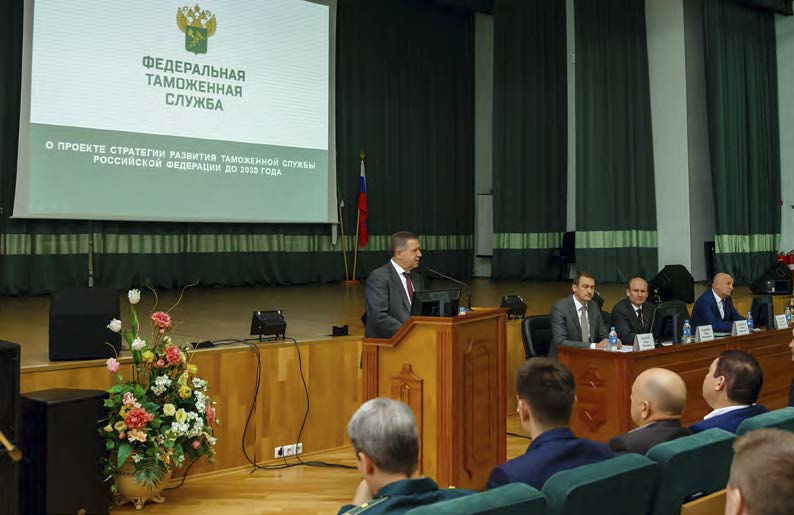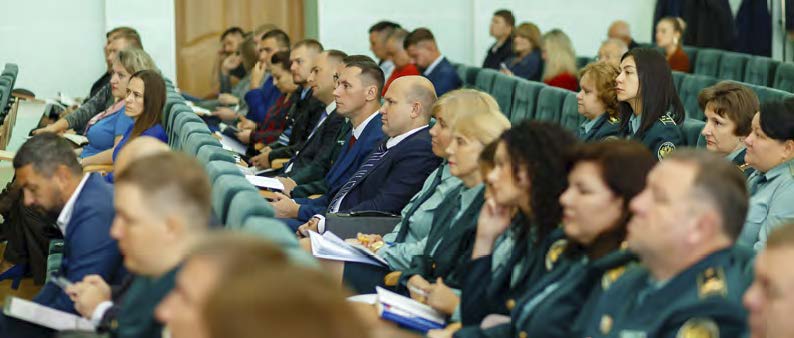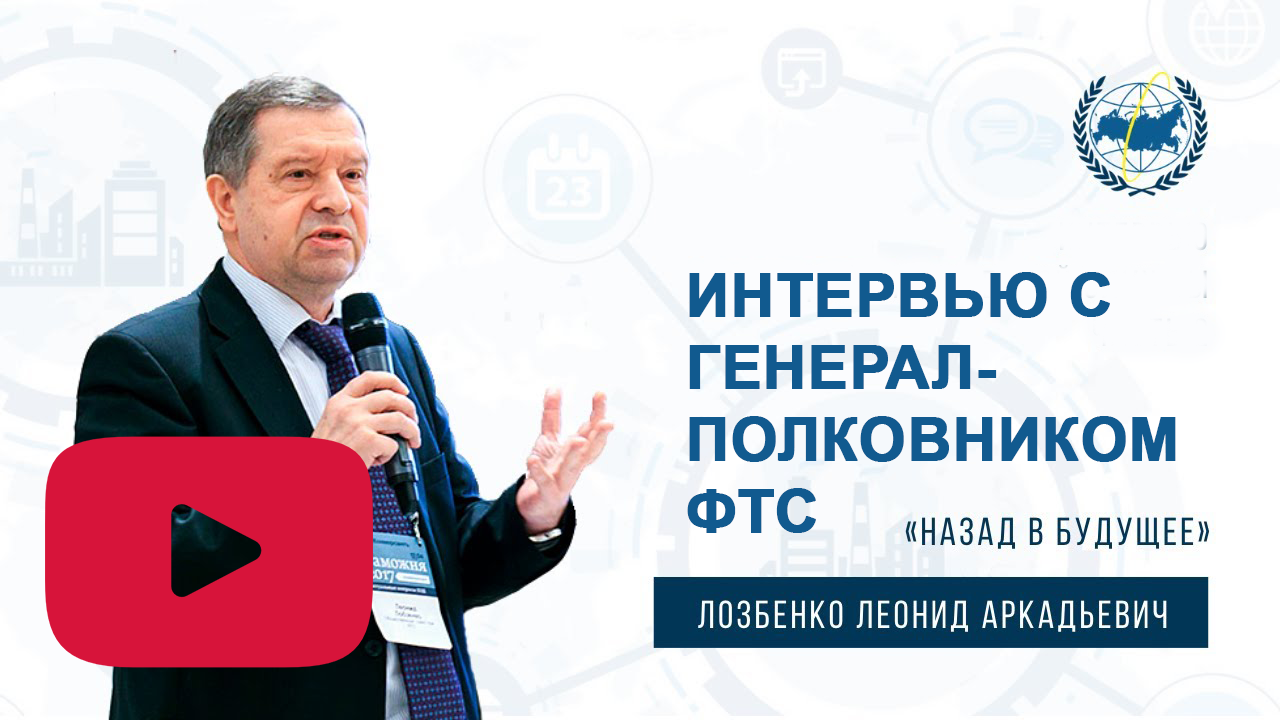
In the period from October 7 to 10, a delegation led by the Chairman of the Public Council at the FCS of Russia Leonid Lozbenko and representatives of the “Interregional Information and Analytical Center for Supply Chain Security” visited the capital of Primorye and held several dozen meetings with representatives of the Far Eastern Customs Administration and local business.
The photo report from this event is published in a separate material.
Vulnerable points

It was not by chance that it was decided to start from the Far East. The region is remote, but it is here that the maximum number of participants in foreign economic activity is concentrated. As a result, a large number of problematic issues arising with this activity.
– “The Far East is a kind of“ neck ”for working with China,” explains Leonid Lozbenko, Chairman of the Public Council at the Federal Customs Service of Russia. – It would seem that there are all conditions for entrepreneurship growth: a free warehouse zone, a port-free regime. However, all these positive movements do not always compensate for the shortcomings in the organization of the work of the customs service, from which the Vladivostok customs officers themselves and the majority of foreign economic activity participants suffer.
“Weaknesses” were identified during meetings with representatives of the local business community: sailors, fishermen, carriers. Many exporters complain about the difficulties of customs clearance and delivery of goods. Difficulties are caused by paperwork for various customs procedures. Tax formalities and currency controls also cause problems.
However, speaking about the problems, the representatives of the business community themselves note that there are clear positive trends in the work of the customs administration. Especially a lot has been done over the past 3 years.
There is progress!

Customs digitalization as part of Strategy 2020 is entering the final stage. The main results of the implementation of the strategy are the introduction of remote release of goods, auto-registration and auto-release of goods, the development of electronic declaration centers and electronic customs. The service of the personal account of a participant in foreign economic activity (FEA) was also launched. At the end of 2016, a system for categorizing FEA participants was introduced and the work of the risk management system was adjusted. At the end of 2018, a unified personal account system was introduced for interaction with authorities when paying customs payments.
– We see that business and customs have developed better interaction and a clear understanding of each other, ”says the Chairman of the Public Council at the FCS of Russia Leonid Lozbenko:“ But at the same time, the red line in conversations with entrepreneurs sounded that no matter how good there was customs administration, no matter how we improve the work of customs and business together, if we do not solve the issue of establishing the border, everything else will remain unrealized!
Today, virtually all resources are included in the modernization process. The problems are obvious to the government, which is trying to solve them at the highest level. But taking into account the expansion of foreign trade (the total volume for the year increased by 23%), it is necessary to accelerate this process.
Everyone will win
Now it’s obvious: if you act energetically and decisively, modernization of the customs service will lead to the creation of an “intellectual customs”, a complete upgrade of the infrastructure of checkpoints and new principles of interaction between customs and business.
Everyone will benefit: both customs and foreign trade participants!
The formation of a qualitatively new, flexible, saturated with advanced IT technologies, artificial intelligence customs is the foundation of the Customs Service Development Strategy until 2030, which is now developed at the Federal Customs Service with the participation of representatives of the business community.
Now the customs authorities are approaching their logical completion of the reform on the separation of actual and documented customs control. A network of regional electronic customs will be created, electronic declaration processes (including documentary control) will be concentrated in electronic declaration centers (EDC). There will also function customs and subordinate customs posts of actual control.
– In the Far East, measures are being taken to create the Far Eastern e-Customs and in its structure the Far Eastern Central Customs Office, said the head of FECO Yuri Ladygin. – The Vladivostok Customs Post (EDC) of the Vladivostok Customs is already operating. As a result of the reform of customs authorities, the time required for customs clearance will be reduced and processes will be simplified, and the effectiveness of customs control will increase.
Conclusion
The Public Council at the Federal Customs Service of Russia is in control of the development of the situation on the ground. FEFD as the main gate to the East is of particular interest today. Today it is one of the most dynamically developing regions, which plays a large role in resolving economic issues between Russia and foreign countries. One of the main goals of the country’s foreign trade policy is the integration of the Russian economy in the Asia-Pacific region, which accounts for the bulk of imports and exports: China, Korea, Vietnam, whose economy is growing steadily. In addition, it is there that goods are produced that are unprofitable to bring from the West today.
It is in the Far East, according to experts, it is necessary to accumulate real opportunities for expanding foreign trade relations between partner countries, stimulate business development, increasing the convenience of doing business for entrepreneurs.
The latter will now be carried out by specially created working groups on problematic issues of interaction between business and customs. They will be the ones who will summarize the problematic issues that exist in the business community of the Far Eastern Federal District, submit them to the expert advisory board (EAB) and work through the formats of the various working sections together with the business community.
EAB should become a key platform for customs and business interaction, where systemic issues of interaction will be really solved.




